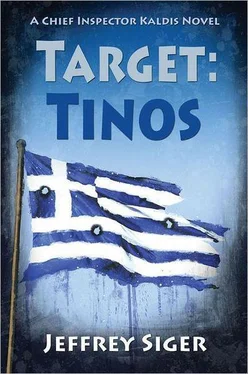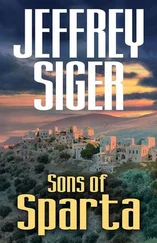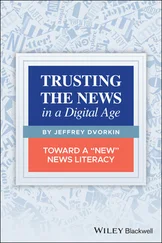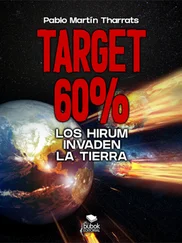Jeffrey Siger - Target - Tinos
Здесь есть возможность читать онлайн «Jeffrey Siger - Target - Tinos» весь текст электронной книги совершенно бесплатно (целиком полную версию без сокращений). В некоторых случаях можно слушать аудио, скачать через торрент в формате fb2 и присутствует краткое содержание. Жанр: Триллер, на английском языке. Описание произведения, (предисловие) а так же отзывы посетителей доступны на портале библиотеки ЛибКат.
- Название:Target: Tinos
- Автор:
- Жанр:
- Год:неизвестен
- ISBN:нет данных
- Рейтинг книги:5 / 5. Голосов: 1
-
Избранное:Добавить в избранное
- Отзывы:
-
Ваша оценка:
- 100
- 1
- 2
- 3
- 4
- 5
Target: Tinos: краткое содержание, описание и аннотация
Предлагаем к чтению аннотацию, описание, краткое содержание или предисловие (зависит от того, что написал сам автор книги «Target: Tinos»). Если вы не нашли необходимую информацию о книге — напишите в комментариях, мы постараемся отыскать её.
Target: Tinos — читать онлайн бесплатно полную книгу (весь текст) целиком
Ниже представлен текст книги, разбитый по страницам. Система сохранения места последней прочитанной страницы, позволяет с удобством читать онлайн бесплатно книгу «Target: Tinos», без необходимости каждый раз заново искать на чём Вы остановились. Поставьте закладку, и сможете в любой момент перейти на страницу, на которой закончили чтение.
Интервал:
Закладка:
“That’s the sort of money-making miracle Greece could use right now,” said a smiling Andreas.
Eleni’s tone turned sharp. “I’m afraid the Foundation has done just about all that it can for our country.”
Andreas forced a smile. “Uhh, no need to take that personally. It was meant to be funny. A witty observation on our times some might say.”
Eleni cleared her throat. “Sorry, I misunderstood. I thought you might be leading into the purpose for this meeting. I’m a bit sensitive on the subject of ‘financial miracles for Greece,’ it seems they’re always tied to some pitch for the Foundation to help ‘save our country.’”
“For yet another time,” said Tassos.
Eleni nodded. “Yes, the Foundation’s treasury has supported the Greek state in famines, floods, earthquakes, and all manner of other things.”
“As I recall,” said Tassos, “The Foundation offered all of its treasures in support of Greece’s defense against the Italian invasion in World War II.”
“Yes, the Italians commenced war against Greece by sinking the Greek destroyer Elli in a submarine attack in Tinos’ harbor on August 15, 1940, a day dedicated to celebrating the Megalochari. The Foundation responded by dedicating all of its resources toward Italy’s defeat.
“But the Foundation has always been there for our country. Right from the beginning we helped establish its national fleet. We were born out of the same times and our histories are interwoven. The very discovery of the Megalochari was taken as a divine sign that Greece’s fight for independence was just.” She shook her head, “But what our country faces today is well beyond our resources.”
“And just what are those resources?” said Andreas.
Eleni turned to Tassos. “Is that what this meeting is all about?”
“Whoa,” said Andreas. “Greece’s financial problems have nothing to do with why we’re here. I want to know what the Foundation has because we’re worried someone wants to steal it.”
Eleni stared at Andreas. “You can’t be serious.”
“As a matter of fact he is,” said Tassos.
“I can’t believe anyone would try to steal the Megalochari. Yes, during the day it is on display for all to worship and embrace. It must be. That is its purpose. But when not, it is locked in a safe. It is never out of sight or unprotected. Not since it was stolen.”
“Stolen?” said Andreas
Eleni nodded. “Once. One hundred and seventy years ago, on December 15, 1842 to be precise. An ex-convict passing through Tinos saw the holy icon draped in jewels and gold. Around midnight, after everyone was asleep, he used a rope to drop into the church and stole the holy icon, its gold and jewel offerings, and whatever other precious articles he could find.” Eleni crossed herself.
“The next morning the theft was discovered and the town went wild. Patrols scoured the island and rallied Tinians to find the thief. Every available ship circled the island to cut off the thief’s escape.
“He’d made it to the northwestern tip of the island, a quarter-mile from the neighboring island of Andros, and tried to convince some sailors to take him there. But they couldn’t agree on a price. A patrol found him around noon drinking at a spring. They searched him and found silver articles he could not explain, so they brought him to the governor of Tinos for questioning. The thief confessed and showed them where he’d hidden the holy icon and everything else he’d stolen.”
Tassos smiled, “I assume they obtained his cooperation through modern methods of police interrogation.”
“Probably,” smiled Andreas. “Yours.”
“He was sent to prison and died there, insane. Since that robbery, as I said, when not on display the Megalochari is locked in a safe.”
“I don’t mean to sound disrespectful, but in the hundred and seventy years since that robbery bad guys have gotten a lot more sophisticated,” said Andreas.
Eleni shrugged. “We’ve had no more problems of that sort.”
“So far. What else does your church have to steal besides the icon?” said Andreas.
She looked at her uncle. “I feel uncomfortable talking about that sort of thing without the permission of my boss. After all the Foundation is a private institution.”
“What is there you can tell me?”
“You still haven’t told me ‘what’s on your mind,’ and since I can’t tell you what ‘else’ might attract a thief without first obtaining my boss’ permission, what if I tell you how the Foundation works? Maybe that will help you with your unstated questions.”
Andreas smiled. “Sounds like a place to start.”
“The founders of the Church of Panagia Evangelistria were forward thinkers who established a separate legal entity making Panagia Evangelistria neither a monastery nor a parish church. Its independent status as part of our Evangelistria Foundation was established by an act of the Greek state in 1835 and confirmed by royal decree in 1851. The Foundation’s operations are run by that ten-member commission I mentioned before, and its administration and management are under the supervision and control of the Greek state, not the Greek Church. Employees are appointed by the commission and paid out of the Foundation’s treasury. The Greek Church does not intervene in the administration of Panagia Evangelistria and the clergy hired to exercise religious duties in Panagia Evangelistria are employed and paid for by the Foundation, not by the state as with other Greek clergy.
“The Foundation derives its income mainly from donations, the performance of ritual celebrations and rites, legacies from deceased donors, the sale of offerings, and rents from properties.”
“Are you saying the Greek Church has no say in what the Foundation does with its money?” said Andreas.
“Essentially, yes.”
“That must make the Greek Church really happy.”
“Same answer, ‘essentially yes.’ The Foundation’s aims include religious, and we support pious clergymen and their families in need when there is no one else to help, and many of the clergy we helped have risen to positions of influence in the Greek Church. The Foundation also makes significant voluntarily contributions to the clergy’s pension fund and insurance, supports missionary activities outside of Greece, maintains and supports all of Tinos’ church organizations and parishes, and assists churches all over Greece affected by calamities. And our non-religious aims are in keeping with the good works of the Greek Church.”
Andreas caught himself nodding at the thought of how adept the Foundation was at keeping the Greek Church happy.
“We have supported our country in times of need, but also provided aid to those beyond our borders affected by natural disasters and war. On Tinos we have built or subsidized practically every school and related facility, granted college scholarships to poor but promising students no matter where in the world they chose to study, offered financial aid to the poor, sick, old, and incapable of working, created an old people’s home, helped finance the hospital, offered dowries to indigent girls, and supported the poor nuns of Saint Pelagia’s Kechrovouni Monastery.
“Most people outside of Tinos don’t realize all that we do for our island. In order for the Foundation to do its good works we rely upon the continuing generosity of our visitors and pilgrims, so the Foundation does what it must to make their stays pleasant. The Foundation has been behind most major public works projects on Tinos. In 1926 we funded the creation of an aqueduct system to replace the island’s reliance on wells, and thirty-five years later financed a new water distribution system. We’re responsible for the large avenues connecting Panagia Evangelistria to other parts of town, and in one way or another financed virtually every significant road-building project on the island. Major funding for Tinos’ man-made port and modern quay came from the Foundation, as did much of the funding for the power plant and high-tension distribution network bringing electricity to most of the island. Plus, we constructed hostels for pilgrims and help pay for many public services, such as fire fighting. The list of what the Foundation does for Tinos is endless.”
Читать дальшеИнтервал:
Закладка:
Похожие книги на «Target: Tinos»
Представляем Вашему вниманию похожие книги на «Target: Tinos» списком для выбора. Мы отобрали схожую по названию и смыслу литературу в надежде предоставить читателям больше вариантов отыскать новые, интересные, ещё непрочитанные произведения.
Обсуждение, отзывы о книге «Target: Tinos» и просто собственные мнения читателей. Оставьте ваши комментарии, напишите, что Вы думаете о произведении, его смысле или главных героях. Укажите что конкретно понравилось, а что нет, и почему Вы так считаете.












